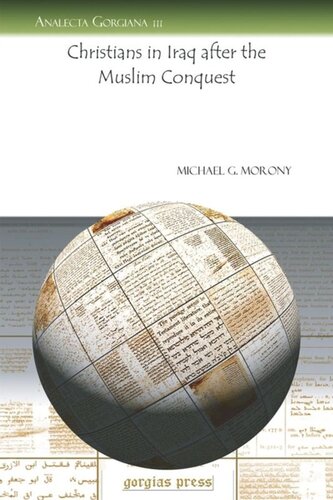

Most ebook files are in PDF format, so you can easily read them using various software such as Foxit Reader or directly on the Google Chrome browser.
Some ebook files are released by publishers in other formats such as .awz, .mobi, .epub, .fb2, etc. You may need to install specific software to read these formats on mobile/PC, such as Calibre.
Please read the tutorial at this link: https://ebookbell.com/faq
We offer FREE conversion to the popular formats you request; however, this may take some time. Therefore, right after payment, please email us, and we will try to provide the service as quickly as possible.
For some exceptional file formats or broken links (if any), please refrain from opening any disputes. Instead, email us first, and we will try to assist within a maximum of 6 hours.
EbookBell Team

4.1
50 reviewsThis brief introduction to the state of Christianity in Iraq during the ascendancy of Islam begins with a discussion of the friction between Christians and Magians. The political role of the church among the Sassanians, both internally and externally, is addressed. With the Islamic conquest various traditions circulated regarding the tolerance of Christianity within Muslim jurisdiction. Morony skillfully navigates these traditions, providing a plausible historical view. The formation of the Assyrian Church of the East’s doctrine and identity as well as their schools, monasteries, laws, and their sense of community and separateness are considered. The contrast with Monophysites with their “Nestorian” competitors rounds out the discussion.